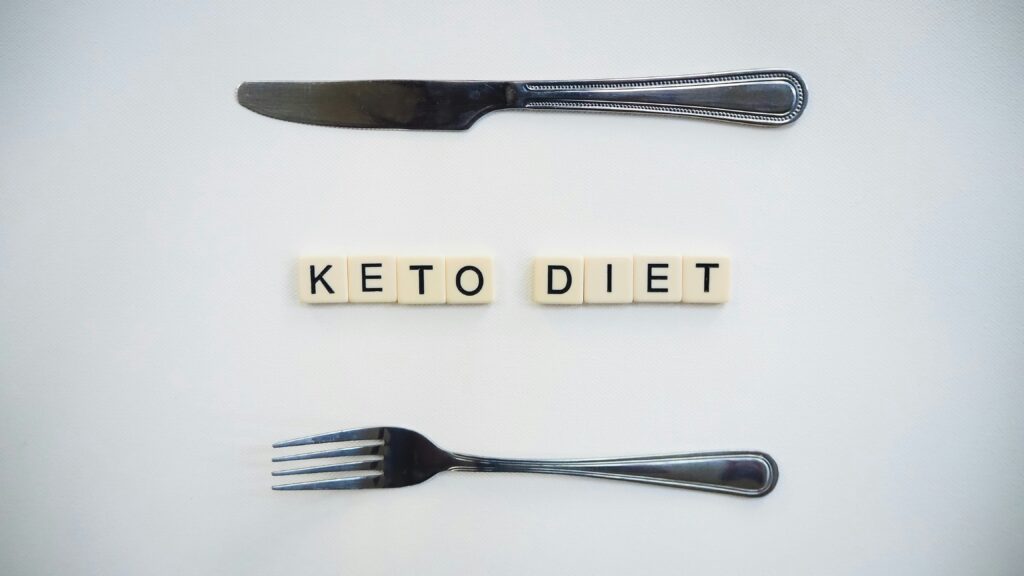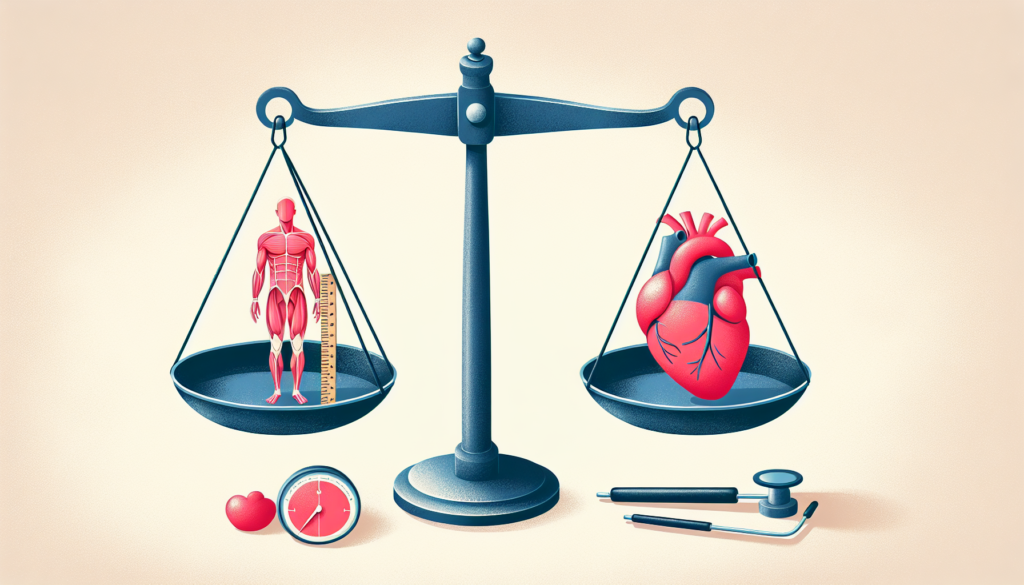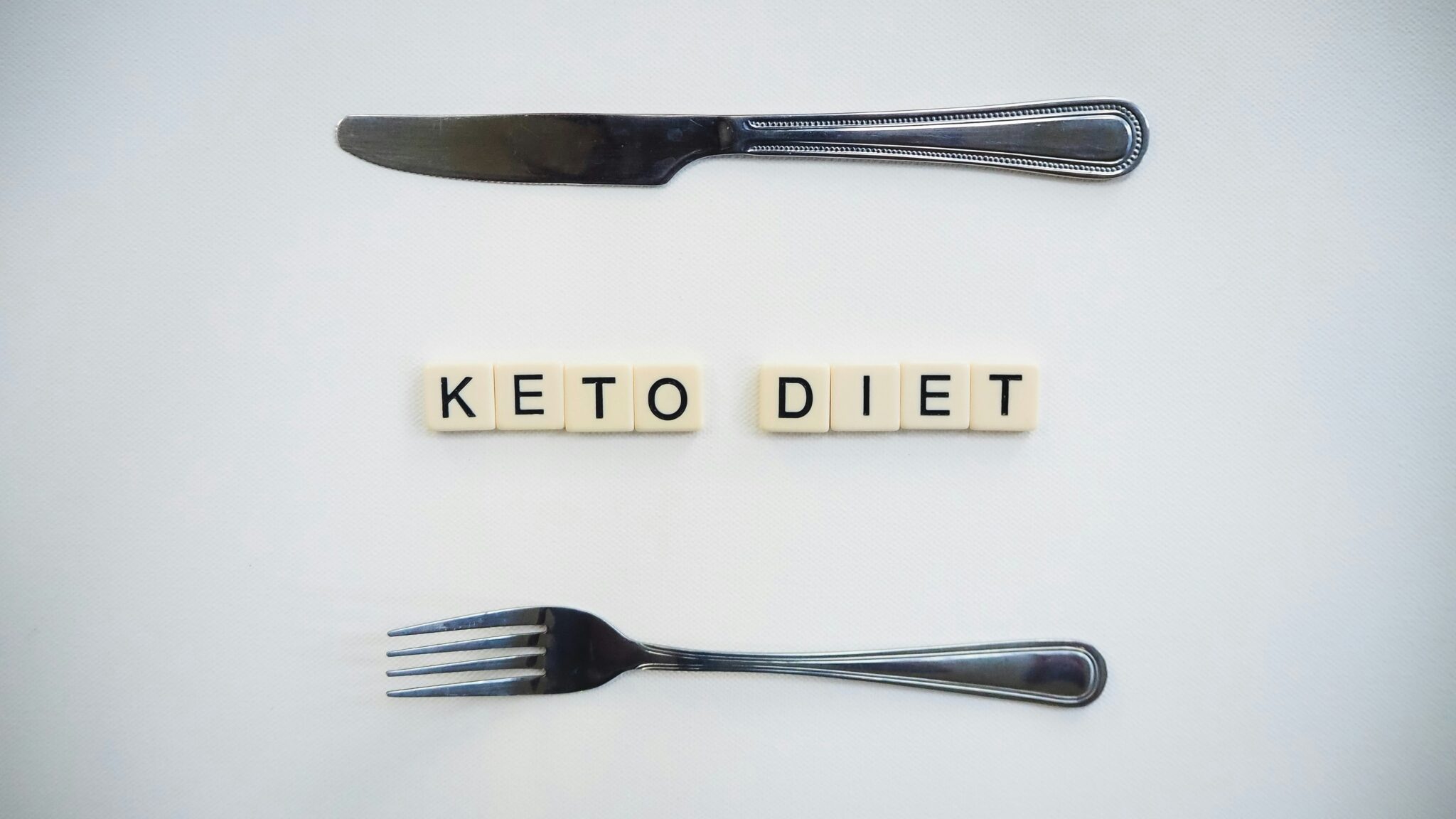Are you curious about the safety of keto diets and their impact on your health? Well, you’re in the right place! In this article, we will explore the potential dangers of keto diets and provide you with the information you need to make an informed decision.
Whether you’re a busy professional looking for efficient meal prep ideas or someone interested in incorporating intermittent fasting into your keto routine, we’ve got you covered. We’ll also discuss the importance of proper meal planning for weight loss and how to fuel your workouts while following a keto diet. So grab a snack (a keto-friendly one, of course) and let’s dive into the world of keto diets to find out what you should know.
Are Keto Diets Dangerous For Your Health?


Understanding Ketogenic Diets
If you’ve been researching different diets or looking for ways to improve your health and lose weight, you’ve probably come across the term “ketogenic diet” or “keto diet.” But what exactly is a ketogenic diet? How does it work? And what are the different types? In this article, we’ll delve into the basics of ketogenic diets and provide you with a comprehensive understanding of this popular dietary approach.
What is a ketogenic diet?
A ketogenic diet is a low-carb, high-fat diet that has been shown to have a range of health benefits, including weight loss and improved insulin sensitivity. The main principle behind a ketogenic diet is to shift your body’s primary source of energy from carbohydrates to fats. By drastically reducing your carbohydrate intake and increasing your fat consumption, your body enters a state called ketosis. During ketosis, your liver produces ketones, which are molecules that serve as an alternative energy source to glucose.
How does a ketogenic diet work?
When you follow a ketogenic diet, your carbohydrate intake is typically limited to around 20-50 grams per day, which is significantly lower than the average person’s typical carbohydrate intake. As a result, your body is forced to switch from using glucose as its primary fuel source to using stored fat, or dietary fat, for energy. This shift in fuel source leads to the production of ketones, which are then used by your body and brain as fuel. By essentially becoming fat-adapted, your body becomes more efficient at burning fat for energy, resulting in weight loss and other health benefits.
Types of ketogenic diets
There are several variations of the ketogenic diet, with some being more restrictive than others. The standard ketogenic diet (SKD) is the most common and involves consuming a low amount of carbohydrates, a moderate amount of protein, and a high amount of fat. Another popular variation is the cyclical ketogenic diet (CKD), which involves cycling between periods of strict keto eating and higher-carb days. The targeted ketogenic diet (TKD) allows for a small amount of additional carbohydrates around workouts, while the high-protein ketogenic diet (HPKD) emphasizes higher protein intake. It’s important to find the variation that suits your individual needs and goals.
Benefits of Keto Diets
The ketogenic diet has gained popularity not only for its potential weight loss benefits but also for its impact on various aspects of health and well-being. Let’s explore some of the key benefits of following a ketogenic diet.
Weight loss
One of the most well-known benefits of a ketogenic diet is its ability to promote weight loss. When you restrict carbohydrates, your body enters a state of ketosis, which helps suppress appetite and reduce overall calorie intake. Additionally, the high-fat content of the diet helps you feel fuller for longer, reducing the likelihood of overeating and making it easier to adhere to your calorie goals.
Improved insulin sensitivity
Many people struggle with insulin resistance, a condition in which the cells in the body become less responsive to the effects of insulin. This can lead to high blood sugar levels and an increased risk of developing type 2 diabetes. Research suggests that following a ketogenic diet can improve insulin sensitivity, which may help manage or even reverse insulin resistance.
Reduced inflammation
Inflammation is thought to be a contributing factor to many chronic diseases, including heart disease, diabetes, and certain types of cancer. Some studies have shown that a ketogenic diet may help reduce inflammation in the body, potentially reducing the risk of these conditions.
Increased energy levels
When your body is in a state of ketosis, it becomes more efficient at using fat for energy. This can lead to increased energy levels and improved stamina throughout the day. Many people who follow a ketogenic diet report feeling more alert, focused, and energized.
Better cognitive function
The brain is a highly energy-demanding organ, relying primarily on glucose for fuel. However, research suggests that ketones can also provide an alternative source of fuel for the brain. Some studies have even shown that a ketogenic diet may have potential benefits for individuals with neurological conditions such as epilepsy, Alzheimer’s disease, and Parkinson’s disease.
Lowered risk of heart disease
Contrary to what you might expect from a diet high in fat, the ketogenic diet has been associated with improvements in several heart disease risk factors. Studies have found that following a ketogenic diet can lead to reductions in blood triglycerides, LDL cholesterol levels (the “bad” cholesterol), and blood pressure.

Potential Health Risks
While the ketogenic diet has its fair share of benefits, it’s essential to be aware of potential health risks and side effects. Let’s explore some of the possible downsides of following a ketogenic diet.
Keto flu
The transition to a ketogenic diet can cause a set of flu-like symptoms known as the “keto flu.” This is a temporary phase that your body goes through as it adapts to using ketones as its primary fuel source. Symptoms may include fatigue, headache, dizziness, irritability, and nausea. While uncomfortable, these symptoms usually subside within a few days to a week.
Nutrient deficiencies
Restricting carbohydrates can lead to a reduced intake of certain essential nutrients, including fiber, vitamins, and minerals. It’s important to ensure you’re getting an adequate amount of these nutrients by incorporating a variety of nutrient-dense foods into your diet or considering appropriate supplementation.
Digestive issues
Some individuals may experience digestive issues when transitioning to a ketogenic diet. Common complaints include constipation, diarrhea, and changes in bowel movements. These issues can typically be mitigated by ensuring you’re consuming enough fiber, drinking plenty of water, and incorporating healthy fats into your meals.
Negative impact on athletic performance
While the ketogenic diet has been shown to be effective for weight loss, some athletes and individuals engaged in high-intensity exercise may find that their performance suffers. This is because carbohydrates are the body’s preferred fuel during intense exercise. However, some athletes have successfully adapted to a ketogenic diet and experienced improvements in their endurance and performance. It may be a matter of individual experimentation and finding what works best for you.
Potential harm to organs
The long-term effects of following a ketogenic diet are still not entirely understood, and there have been concerns about potential harm to certain organs, such as the kidneys. Individuals with pre-existing kidney conditions or a history of kidney stones should exercise caution and consult with their healthcare provider before starting a ketogenic diet.
Unsustainability
For some people, sticking to a ketogenic diet long-term can be challenging due to the strict limitations on carbohydrate intake. It’s essential to consider your lifestyle, food preferences, and overall sustainability when deciding if a ketogenic diet is the right choice for you. It may be helpful to work with a registered dietitian or nutritionist to ensure you can maintain a well-rounded and enjoyable eating plan.
Safety and Precautions
While the ketogenic diet can be an effective tool for achieving your health and weight loss goals, it’s important to take certain precautions to ensure your safety and minimize potential side effects. Here are some key considerations:
Consulting a healthcare professional
Before embarking on a ketogenic diet, it’s recommended to consult with a healthcare professional or registered dietitian. They can assess your individual health status, discuss any potential risks or contraindications, and provide guidance on how to navigate the diet safely and effectively.
Monitoring nutrient intake
As mentioned earlier, following a ketogenic diet may increase the risk of certain nutrient deficiencies. To mitigate this risk, it’s crucial to focus on consuming a wide variety of nutrient-rich foods. Prioritize foods such as leafy greens, non-starchy vegetables, nuts and seeds, healthy fats, and quality sources of protein to ensure you’re meeting your nutritional needs.
Staying hydrated
When you restrict carbohydrate intake, your body excretes more water due to changes in insulin levels and glycogen stores. This can lead to an increased risk of dehydration, so it’s vital to stay hydrated by drinking plenty of water throughout the day.
Adhering to the diet correctly
To reap the benefits of the ketogenic diet, it’s important to adhere to the diet correctly. This means carefully monitoring your carbohydrate intake, ensuring you’re consuming enough healthy fats, and moderating your protein intake based on your individual needs and goals. Tracking your food intake using an app or working with a registered dietitian can help ensure you’re on track.

Managing Side Effects
If you’re experiencing side effects or discomfort while following a ketogenic diet, there are strategies you can employ to alleviate them. Here are some tips for managing common side effects:
Keto flu remedies
To combat the symptoms of the keto flu, it’s essential to stay hydrated and consume plenty of electrolytes. Adding a pinch of salt to your water, consuming bone broth, and eating foods rich in potassium and magnesium, such as leafy greens and avocados, can help replenish your electrolyte stores and alleviate symptoms.
Addressing nutrient deficiencies
To prevent nutrient deficiencies on a ketogenic diet, focus on consuming a wide variety of nutrient-dense foods. Incorporate vegetables, nuts, seeds, healthy fats, and quality sources of protein into your meals to ensure you’re obtaining a diverse range of vitamins and minerals. If needed, consider supplementation under the guidance of a healthcare professional or registered dietitian.
Seeking medical advice
If you’re experiencing persistent or severe side effects, it’s crucial to seek medical advice. Your healthcare provider can assess your symptoms, provide appropriate guidance, and ensure your overall health is not compromised.
Who Should Avoid Keto Diets?
While the ketogenic diet can be beneficial for many individuals, there are certain groups of people who should avoid following a ketogenic diet. Here are two populations that should exercise caution:
Pregnant or breastfeeding women
Pregnant or breastfeeding women have unique nutritional needs to support the health of themselves and their infants. The ketogenic diet’s restrictive nature may not provide adequate nutrients for both the mother and the baby. It’s important for pregnant or breastfeeding women to consult with their healthcare provider before making any dietary changes.
Individuals with certain medical conditions
Those with certain medical conditions, such as pancreatitis, liver disease, or gallbladder disease, should exercise caution when considering a ketogenic diet. Individuals with a history of disordered eating or those at risk of developing an eating disorder should also approach the diet with caution. Consulting with a healthcare professional is crucial in these cases to ensure that the ketogenic diet is suitable and safe.

Alternatives to Keto Diets
If the ketogenic diet doesn’t align with your preferences or health needs, there are alternative dietary approaches that can also provide health benefits. Here are a few examples:
Low-carb diets
Low-carb diets, such as the Atkins diet or the paleo diet, focus on reducing carbohydrate intake while still allowing a moderate intake of protein and healthy fats. These diets offer flexibility in food choices and may be more sustainable for some individuals compared to a ketogenic diet.
Mediterranean diet
The Mediterranean diet is a balanced and sustainable eating pattern that emphasizes whole foods, such as fruits, vegetables, whole grains, legumes, fish, and healthy fats. It has been associated with numerous health benefits, including reduced risk of heart disease, cancer, and cognitive decline.
Plant-based diets
Plant-based diets, including vegetarian and vegan diets, prioritize the consumption of plant-based foods while minimizing or eliminating animal products. These diets can be tailored to be low in carbohydrates and high in healthy fats, while still providing an array of essential nutrients.
Balancing Keto with Nutritional Needs
Regardless of the dietary approach you choose, it’s crucial to prioritize nutrient-rich foods to meet your nutritional requirements. Here are some tips for balancing a ketogenic diet with your nutritional needs:
Importance of nutrient-rich foods
Focus on incorporating a variety of nutrient-rich foods into your ketogenic diet. This includes non-starchy vegetables, nuts and seeds, healthy fats like avocado and olive oil, and quality sources of protein such as lean meats, poultry, fish, and plant-based proteins like tofu and tempeh. This variety will help ensure you’re obtaining a range of vitamins, minerals, and other essential nutrients.
Supplementing to meet nutritional requirements
In some cases, it may be necessary to supplement your diet to meet specific nutritional needs. This can be done under the guidance of a healthcare professional or registered dietitian. Common supplements that may be recommended on a ketogenic diet include omega-3 fatty acids, magnesium, and vitamin D.

Long-Term Effects and Sustainability
The long-term effects of following a ketogenic diet are not yet well-understood, and sustainability can be a challenge for many individuals. Here are some important factors to consider:
Safety of long-term ketosis
While short-term studies have shown positive health outcomes associated with a ketogenic diet, there is limited long-term research. It’s unclear how sustained ketosis over months or years may impact overall health, including cardiovascular health and liver function. More research is needed to understand the safety and effectiveness of long-term ketosis.
Maintaining a healthy balance
If you choose to follow a ketogenic diet long-term, it’s important to find a balance that works for you. Consider incorporating periods of cyclical or targeted ketogenic dieting, where you introduce higher-carb days or times when carbohydrates are consumed strategically around workouts. This can provide the benefits of a ketogenic diet while allowing for some flexibility and variation in carbohydrate intake.
Transitioning out of keto
If you decide to transition out of a ketogenic diet, it’s important to do so gradually and mindfully. Reintroduce carbohydrates slowly and monitor how your body responds. Pay attention to any changes in energy levels, mood, digestion, and overall well-being as you adjust your diet.
Conclusion
The ketogenic diet can be an effective tool for weight loss and improving overall health when followed correctly and with proper precautions. It has been shown to provide numerous benefits, including weight loss, improved insulin sensitivity, reduced inflammation, increased energy levels, better cognitive function, and lowered risk of heart disease.
However, it’s important to approach the ketogenic diet with awareness of the potential health risks and side effects. The keto flu, nutrient deficiencies, digestive issues, negative impact on athletic performance, potential harm to organs, and unsustainability are some factors that need to be considered.
To ensure your safety and optimize your results, consult with a healthcare professional or registered dietitian before starting a ketogenic diet. They can provide personalized guidance, monitor your nutrient intake, and help you navigate any potential side effects or challenges.
Remember, the ketogenic diet is not the only approach to improving your health and well-being. There are alternative dietary patterns, such as low-carb diets, the Mediterranean diet, and plant-based diets, that can also provide health benefits while offering more flexibility and variety. Ultimately, finding the right balance and approach to nutrition is key to achieving long-term success and sustainability.


